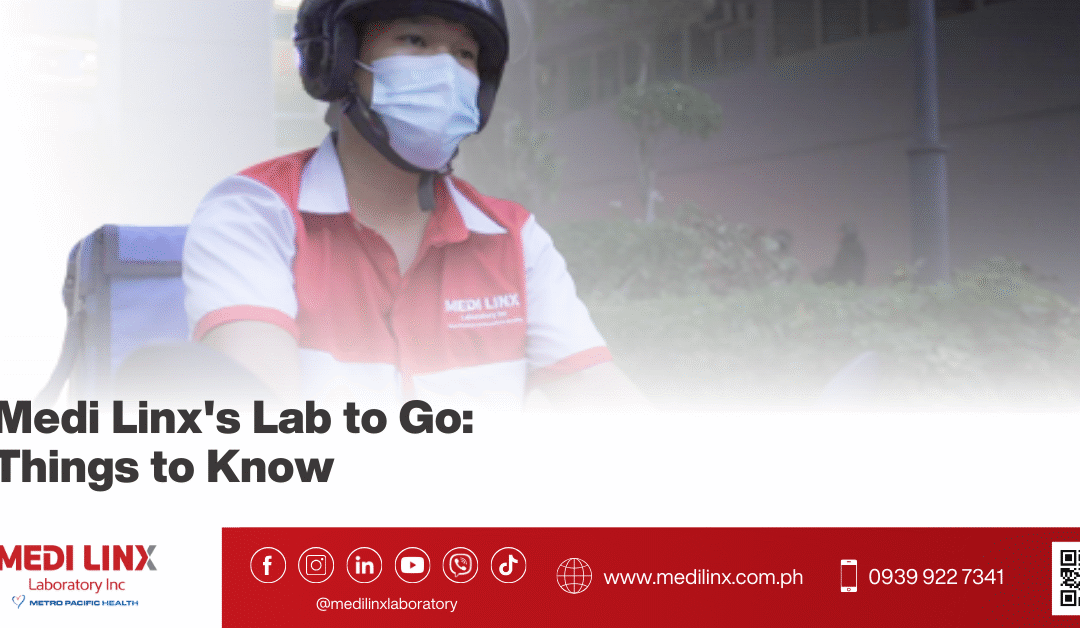The small and vital thyroid gland, located at the base of the neck, is rarely thought about by most people, yet it plays a vital role in keeping one generally fit and healthy. It produces several hormones that ensure everything in the body functions properly, from regulating metabolism to influencing growth and development; wide-ranging effects on the body are possible.
Let’s explore the complex functions of the thyroid gland, relate common thyroid diseases to their symptoms, and enumerate available treatment options.
Thyroid Gland Function
The thyroid gland not only regulates metabolism, but its hormones also play a crucial role in influencing nearly every cell in the body. These hormones impact a wide range of functions, from energy levels and body weight to cardiovascular health, mental well-being, and overall mood. As a result, the thyroid is vital for maintaining balance across various physiological systems, ensuring the body functions optimally.
Hormone Production
- Thyroxine (T4): Known as the primary hormone, produces thyroxine hormone, which is present in the bloodstream. It comprises four iodine atoms and is synthesized by the thyroid gland itself. Although T4 plays a major role in different functions within the body, its main purpose is to act as a precursor for the more active hormone Triiodothyronine.
- Triiodothyronine (T3): It is an active form of thyroid hormone with three atoms of iodine and is produced under the conversion of T4. In much smaller amounts than those of T4, it exhibits a much stronger effect on the cellular processes of the human body.
Metabolic Rate Regulation
- Basal Metabolic Rate (BMR): The rate at which a person uses at rest, regulated by thyroid hormones. An appropriately maintained BMR is imperative to sustain correct weight and energy levels.
- Thermogenesis: The thyroid hormones help regulate metabolic rate, which is important in maintaining body temperature in various environmental temperatures.
Growth and Development
- In Infants and Children: Thyroid hormones are vital to a child’s normal growth and maturation of the brain. For this reason, proper physical and cognitive development in children requires adequate levels of thyroid hormones.
- In Adults: Although the effect of thyroid hormones on growth is minimal in adulthood, the hormones still promote cellular activity and health in general.
Cardiovascular and Neurological Functions
- Cardiovascular Function: Thyroid hormones may influence heart rate at the strength of cardiac contractions, thereby altering cardiovascular health and performance.
- Neurological Effects: These hormones maintain cognitive function, mood stability, and mental clarity. If out of balance, mood disorders, such as difficulties in cognition and changes in alertness, are possible.
People at Higher Risk for Thyroid Cancer
Thyroid cancer and other related diseases have been bound with a higher risk to some people, who should undergo testing to ensure its early detection and management effectively. These individuals are thus recommended for observation of symptoms and check-ups:
- People are exposed to radiation, more so to the head and neck region, as such exposure has increased the risk of thyroid cancer.
- Individuals who have thyroid cancer or genetic disorders, such as Multiple Endocrine Neoplasia (MEN) and Familial Medullary Thyroid Carcinoma (FMTC), in their family medical history. They should be well aware of it and get themselves tested since their genetic predisposition highly increases the chances.
- Those with thyroid conditions, such goiter, need to be followed through as these conditions may sometimes act as precursors to the development of cancer.
- Older adults, primarily women between the ages of 20-55, who are more prone to thyroid cancer than men, should especially undergo screening.
Key Symptoms of Thyroid Cancer and Diseases You Shouldn’t Ignore
Metabolic Symptoms
- Unexplained Weight Changes: Thyroid dysfunction can cause sudden weight gain or loss. It is a related symptom for the two common thyroid diseases:
Hypothyroidism: Often associated with weight gain. It is a condition in which the thyroid gland is underactive and does not generate enough thyroid hormones.
Hyperthyroidism: Usually linked with weight loss. It occurs when the thyroid gland is overactive and produces more significant amounts of thyroxine than it should.
- Chronic Fatigue and Weakness include usual tiredness even after proper rest. They are the most frequently reported symptoms of both hyperthyroidism and hypothyroidism.
- Digestive Problems: Constipation (for hypothyroidism) or diarrhea (for hyperthyroidism) is another symptom due to a disturbance in the gastrointestinal system.
Physical and Dermatological Symptoms
- Swelling in the Neck: A goiter or swelling of the neck is a major indicator of thyroid disease, even though it is the least observed factor compared to other symptoms like chronic tiredness and weight changes. It can, therefore, be a specific symptom of thyroid abnormality and usually shows disease in its later stage. This sign may be due to enlargement of the thyroid gland, goiter, or thyroid nodules.
- Muscle and Joint Ache: Muscle cramps, stiffness, and joint aches are common complaints of hypothyroidism. In this condition, metabolic processes run at a slower pace, causing muscle discomfort and joint pain. This may interfere with the patient’s ability to move around easily and affect his quality of life.
Cardiovascular Symptoms
- Heart palpitations involve rapid or irregular heartbeats, which can be symptoms of hyperthyroidism. High levels of thyroid hormones cause the heart to beat at an excessive rate or with ecstasies, which may become uncontrollable at times. Therefore, they are a sure sign of a medical checkup.
Reproductive Symptoms
- Irregular Menstrual Cycles: Thyroid abnormalities can cause disorders in women’s menstrual cycle. Typically, hypothyroidism causes heavier and more frequent periods, while hyperthyroidism leads to light or less frequent menstruation.
Treatments for Thyroid Cancer and Related Diseases
Thyroid Cancer
It is not actually known why thyroid cancers occur for a number of reasons. Chief among these risk factors is radiation to the head and neck, which has also been associated with the development of thyroid cancer. The reason can also be genetic; inherited mutations in genes and familiar syndromes, like multiple endocrine neoplasia (MEN) and familial medullary thyroid carcinoma FMTC, are also responsible for the development of thyroid cancer. A history of thyroid disorders, such as goiter or benign thyroid nodules, may also be a contributing factor to an increase in the chances of this cancer.
Surgery is the main sort to treat thyroid cancer, where parts of all of the thyroid gland will be removed, depending on the stage of the cancer. Since the thyroid gland has been removed, lifelong medication in the form of levothyroxine to replace thyroid hormones will be necessary and also to prevent the recurrence of the cancer.
Hypothyroidism
The general medication for hypothyroidism involves taking synthetic thyroid hormone, usually by mouth, as a pill called levothyroxine. This pill will help replace the missing thyroid hormones in your body. It is needed daily; your doctor will regularly check the blood for the right amount.
Hyperthyroidism
Medications such as methimazole or PTU can decrease the amount of thyroid hormones. You can also take a radioactive iodine pill, which targets and destroys overactive thyroid cells in your body. In some cases, surgical removal of a partial or whole thyroid gland may be done. Afterwards, the use of thyroid hormone replacement medicine is usually necessary.
Hashimoto’s Thyroiditis
The treatment of Hashimoto’s thyroiditis is the same as hypothyroidism with the use of levothyroxine, a synthetic thyroid hormone replacement.
Grave’s Disease
Drugs that treat Graves’ disease include antithyroid medications like methimazole and PTU. Beta-blockers may also be given for symptoms like palpitations. In severe cases or when other treatments have not been working, surgery to remove part or all of the thyroid gland and relieve eye problems may be suggested.
Thyroid Nodules and Goiter
Many small, benign nodules are followed with routine ultrasounds to prevent enlarging and becoming problematic. Surgery could be an option if nodules are large, complicated, or potentially cancerous.
Taking Action This Thyroid Cancer Awareness Week
- Be Informed and Inform Others: Learn about the disease by first understanding the signs and symptoms, risk factors, and available treatment options. The better you are knowledgeable about the disease, the more capable you will be in communicating accurate information. By sharing this with others, you are helping spread the word about the importance of thyroid health and informing those at risk to get regular check-ups.
- Schedule Regular Screening: Regular thyroid screening is vital for the early detection of thyroid cancer. You can even encourage your friends, family members, and colleagues to go for thyroid checks, especially those who belong to the high-risk group. By doing so, you are helping to promote a regular screening process, ensuring early detection for thyroid cancer, which is most treatable.
- Practice Healthy Lifestyle: You can start advocating for a diet with adequate iodine, which is vital to the thyroid gland, and regular exercise as part of general health. Also, avoid smoking and limit alcohol intake, as both have detrimental effects on the thyroid. Good habits substantially help reduce the risk of thyroid problems and thus help maintain good health.
FAQs
What is the first stage of thyroid cancer?
The initial stage of thyroid cancer often refers to as Stage 1. This was either papillary or follicular thyroid carcinoma in classification, the two most common types of cancer, and commonly had an excellent prognosis in stage 1. During this stage, the cancer is localized; it remains confined within the gland and has not spread into the tissues close by or to other parts of the body. The tumor is usually small, less than 2 cm, and often has a very good chance of being treated successfully.
Is thyroid cancer very curable?
Yes, the prognosis of thyroid cancer is generally curable, especially when diagnosed early.
Who is at risk for thyroid cancer?
The cancer most often affects those between the ages of 20 and 55. A family history also tends to raise that risk. Additionally, variations in thyroid cancer risk concerning pregnancy or the use of exogenous hormones have led some researchers to suggest that hormonal factors may play a role.
How long can a person live with thyroid cancer?
Thyroid cancer has a high survival rate. And until now, many people with the disease succeeds in living a long, healthy life. In localized thyroid cancer, many patients survive well beyond five years. While advanced thyroid cancer is comparatively low but still promises patients to live for several years.
Thyroid Health Begins with You: Take Action Now
Thyroid Awareness Week serves as the best reminder to be able to take care of your thyroid health. While understanding the thyroid gland functions and the associated symptoms one may have is good to know, it helps to find a remedy for it. If you have symptoms that concern you or have worries about your thyroid, it’s time to book a test. At Medi Linx Laboratory Inc., our Thyroid LabCheQ offers complete thyroid testing. This package is designed to give you a clear picture of your thyroid health. Comprehensive testing options include:
You can also check out our other packages and procedures for your future reference. These include Urinalysis, Complete Blood Count (CBC), and Creatinine Test.
Indeed, early diagnosis and timely management can make a big difference in your health. So don’t wait any longer; book your thyroid tests now and move towards better health!




